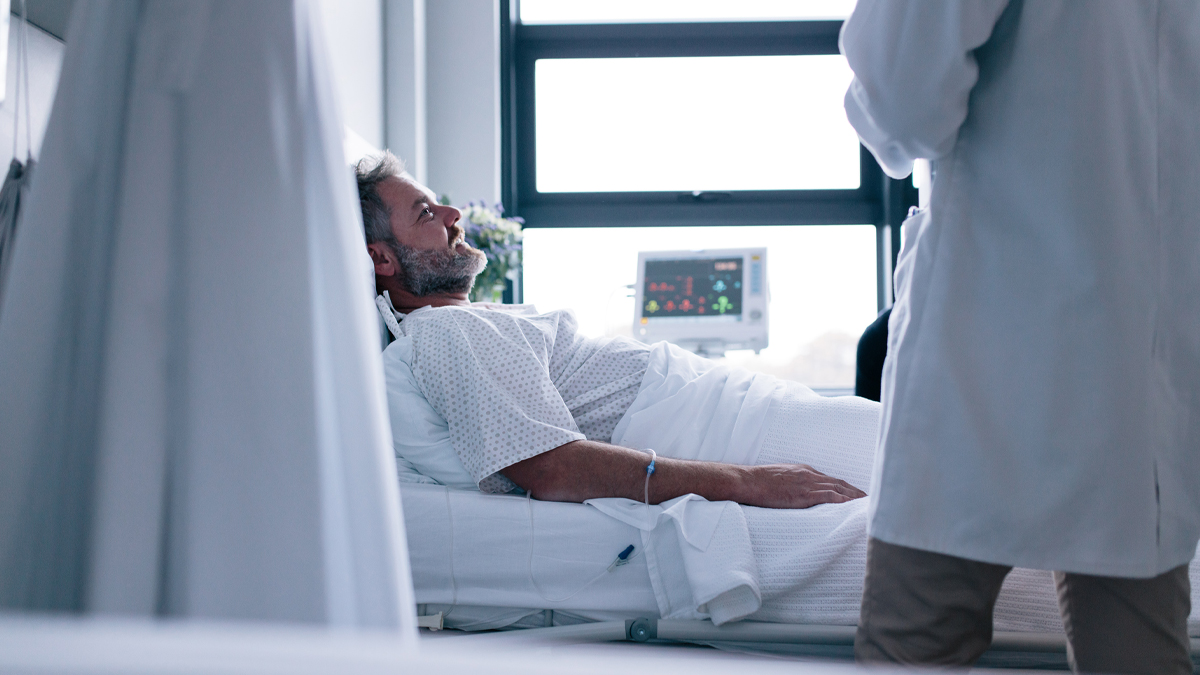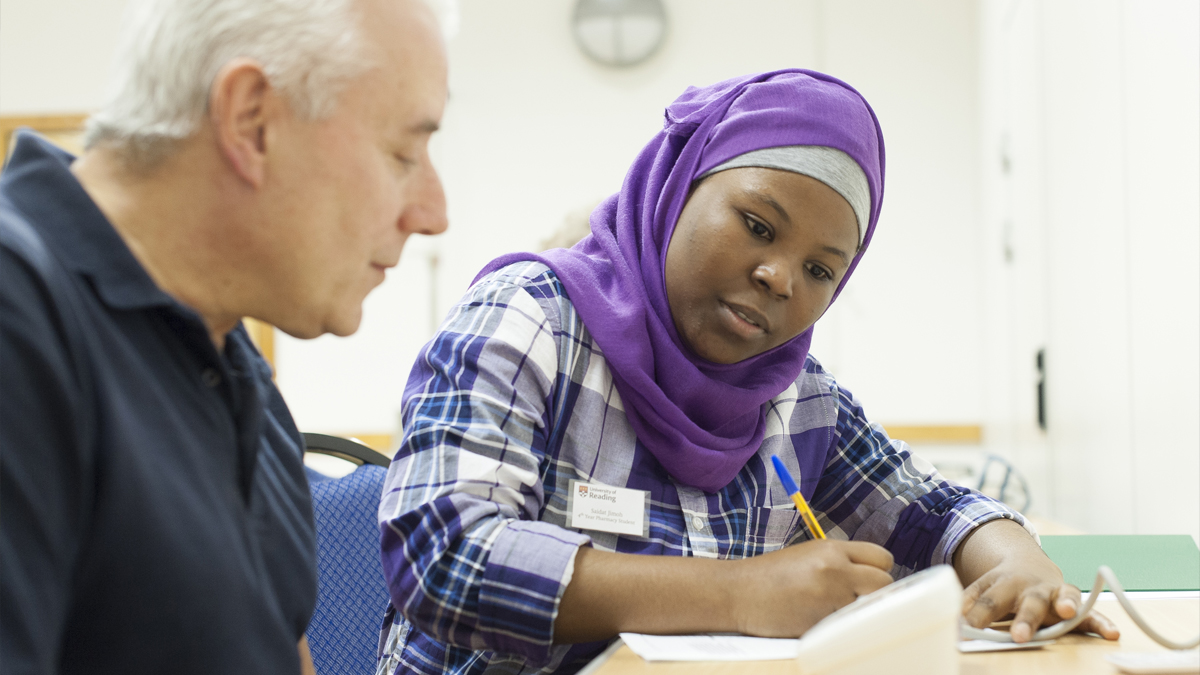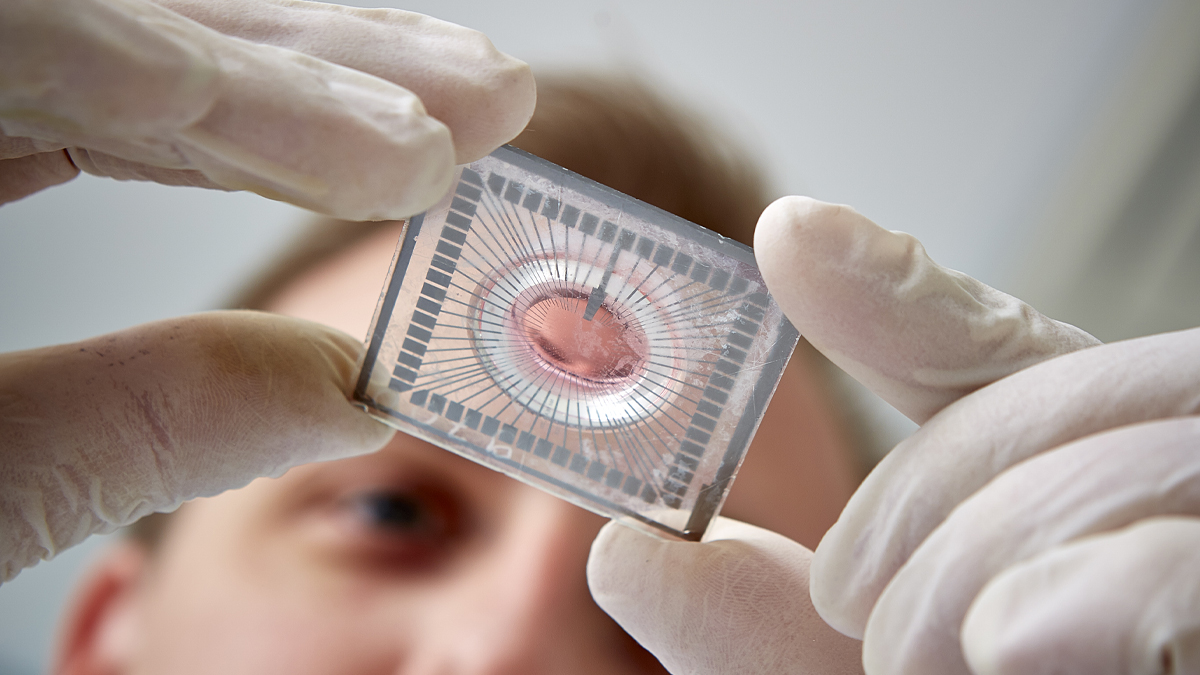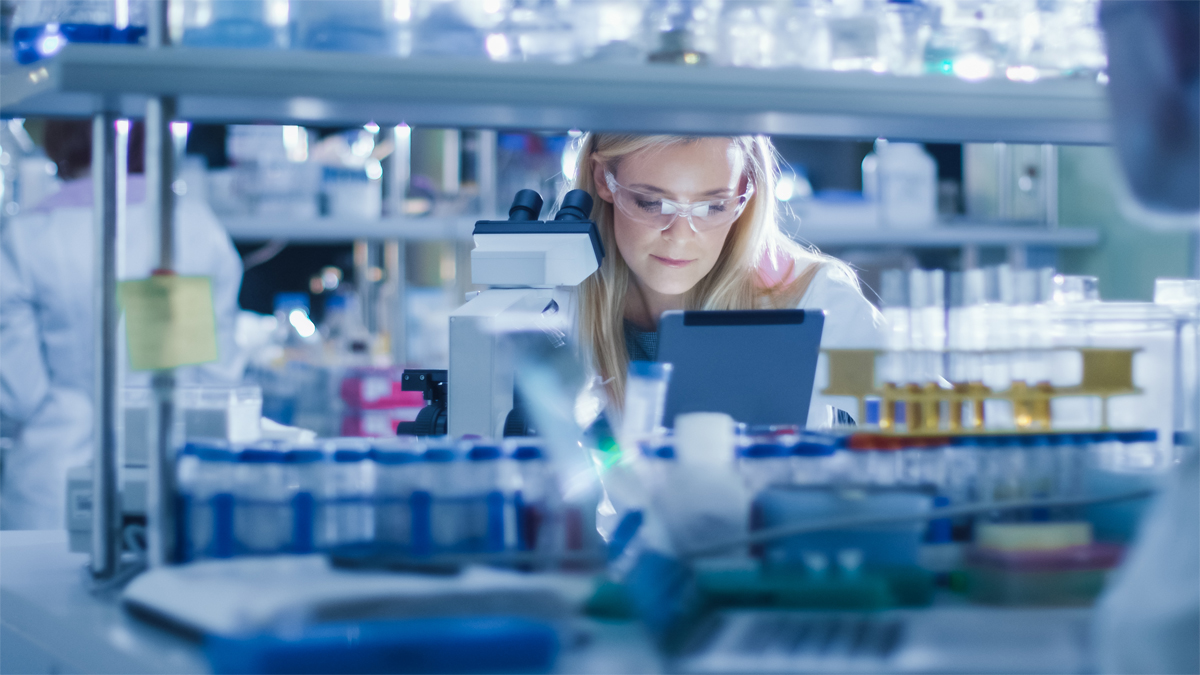
The day-to-day role of a physician associate
Sam's day as a PA usually starts with consultant ward rounds to discuss and understand the needs of his patients. He then moves on to help a team of junior doctors to complete all the jobs generated from the ward rounds. This may include taking blood samples, checking fluid status, re-examining patients and speaking with families. However, every day is different in the life of a Physician Associate, and Sam's day could include a variety of tasks
"Some days I help out at the outpatient clinics. I assist consultants and registrars at the Rapid Assessment Clinic for Older People (RACOP).Elderly patients are often complex with multiple conditions and require a more involved consultation which we provide at the hospital. I usually end the day with an evening board round where I go through each patient to ensure jobs and treatments have been completed."
If you come to study at Reading, you'll learn through relevant and up-to-date clinical case studies. Sam's work provides him with a variety of real scenarios for his students.
"Being able to apply real life work scenarios to my lectures really enhances my teaching. I often give my students anonymised case studies about patients I have seen at the hospital. I don't think it can get more current than that."
Sam also finds it very useful to meet his students on placements at the hospital.
"I see quite a lot of our students on placements in surgical wards and even A&E which is really good. This gives me an opportunity to point them to interesting practical case studies."
From an alumnus to an academic
Sam graduated with an undergraduate degree in biomedical sciences at the University of Reading and began working as a healthcare assistant for a couple of years in a care home and then at an NHS hospital. However having moved on to working as a lab assistant for a biotech company, Sam realised how much he missed working with patients.
When Sam heard about the Physician Associate programme offered by Reading, he knew this was just the opportunity he was looking for.
"The physician associate programme helped me get back into the medical field and get hands on with patients again. It also got me a real job very quickly!"
Now back to the University as an academic, Sam is delighted to see the programme constantly evolving.
"We are using better ways of learning including more workshops. The programme has a more interactive feel to it, encouraging students to find their answers on their own."
Physician Associates and their impact on the NHS
PAs are certainly helping combat the increasing strain on the NHS by complementing the health service and the doctors. Once qualified, PAs are a valuable member of the medical team working under the supervision of doctors. They also work with nurses, physiotherapists, occupational therapists and other members of the multidisciplinary team.
Sam believes now is an exciting time to join this rapidly expanding profession.
"The PA role is a new career and will only become more important to the NHS in the future. We are in the process of becoming a regulated profession under the auspices of the General Medical Council. Very soon we will not only diagnose issues with patients but also prescribe medicines to treat them, increasing the scope of our role."
A huge accomplishment
Although the course is a big commitment and involves a lot of hard work, the rewards reaped from qualifying as a Physician Associate make it all worthwhile.
"Practising as a Physician Associate is the most rewarding job. I find it a privilege to care for patients. It's very satisfying to be able to have such a positive impact on peoples lives."

Physician Associate

Our research
